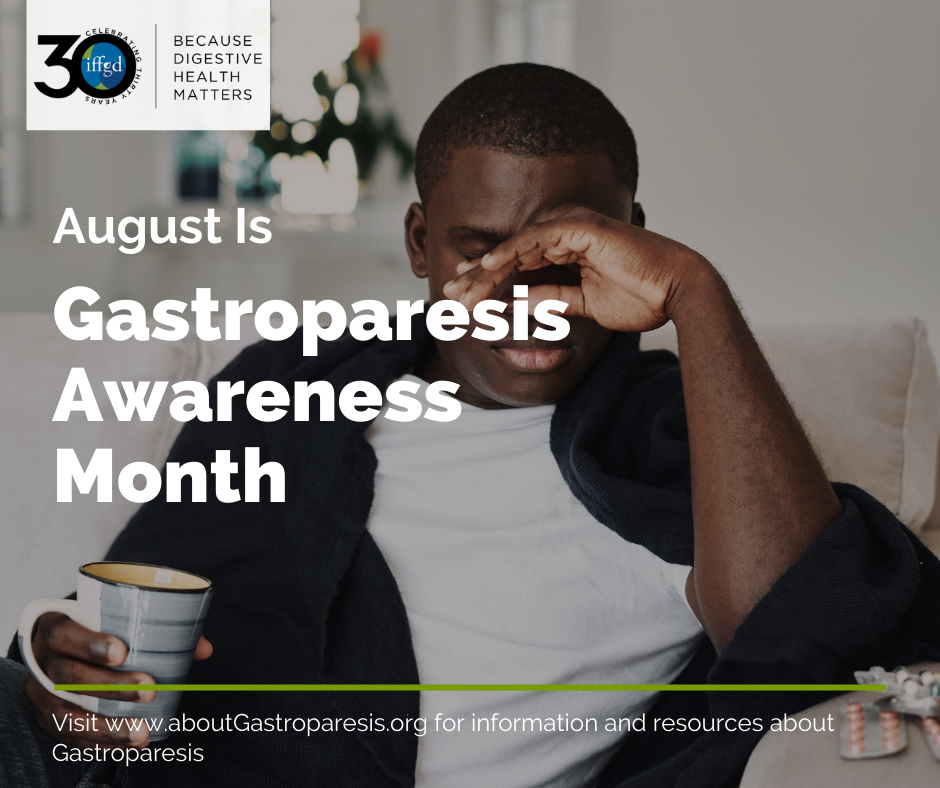Gastroparesis (GP) is a condition of slowed stomach emptying with no intestinal blockage. Healthcare providers often refer to this as delayed gastric emptying. This is considered a motility disorder where the stomach does not empty food as quickly as it should. Motility describes the movement of food and fluids through the gastrointestinal (GI) tract.
Symptoms
- Early Satiety (feeling full)
- nausea
- vomiting
- abdominal pain
- weight loss
GP symptoms can vary from mild to severe and in some patients can be life-threatening due to secondary conditions such as malnutrition (when the body does not absorb enough nutrients). GP symptoms can also lead to further health issues that can decrease overall quality of life.
Causes of Gastroparesis
There are three specific groups of GP causes but many rare causes also exist:
- Idiopathic GP– This is the most common. Idiopathic simply means that there is no known cause of the disease. An average of 30% to 50% of patients with gastroparesis have a diagnosis of idiopathic gastroparesis.
- Diabetic GP-Diabetes mellitus is a disorder in which the body does not produce enough or respond normally to insulin. Insulin is a hormone released by the pancreas that regulates blood sugar. This condition causes higher than normal levels of sugar in the blood. Diabetic GP occurs when slow emptying of the stomach occurs in people with diabetes. About 25% of GP patients are diagnosed with diabetic GP.
- Post-surgical– GP can occur when surgery changes the stomach. This can be through damage to nerves or the formation of scar tissue damage to the stomach.
GP can occur in children and adults. Managing gastroparesis can be challenging to the person with the condition, to family members, and to health care providers. In most cases treatment does not cure gastroparesis – it is usually a chronic condition. However, in most people treatment does help manage the condition.
While much remains to be learned about GP, patients benefit from prompt recognition, or diagnosis, of the disorder which allows the most effective treatments to begin.
Learn more about research findings from our Gastroparesis Patients: Disease Impact and Medication Risk Assessment














